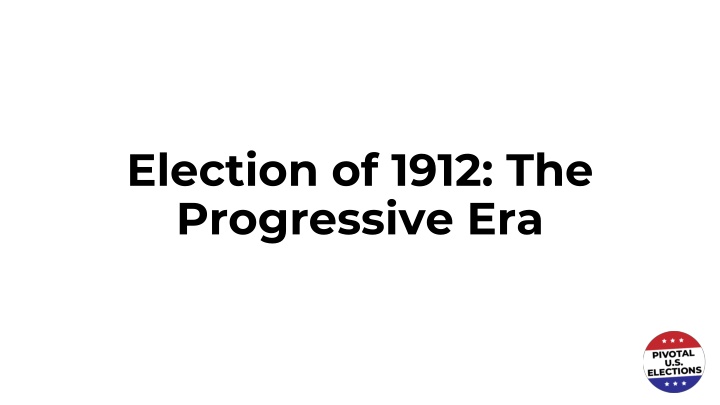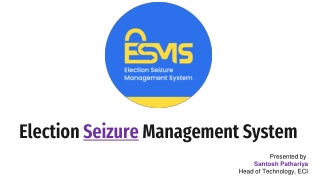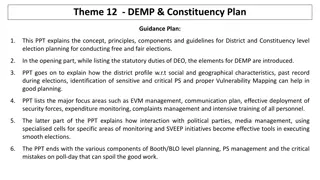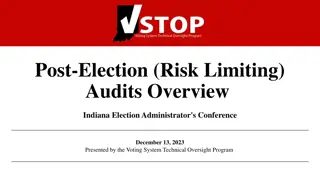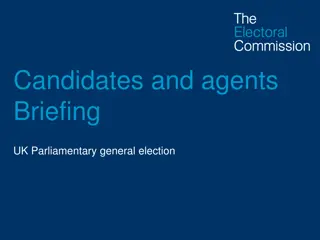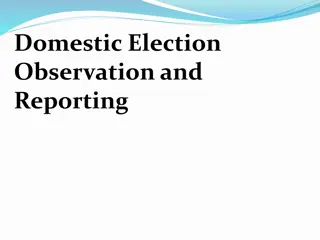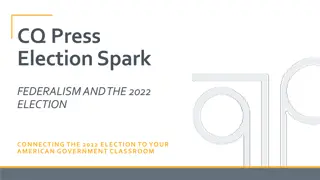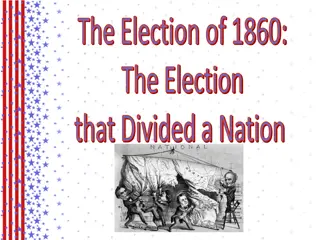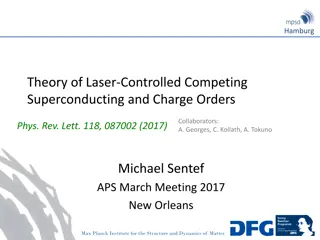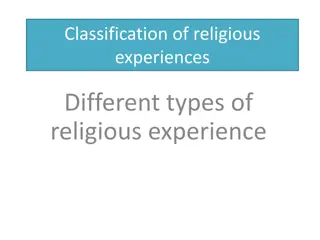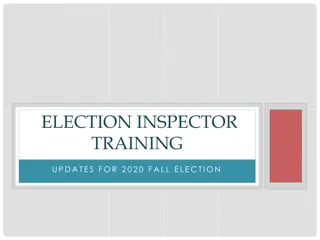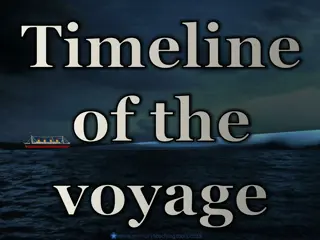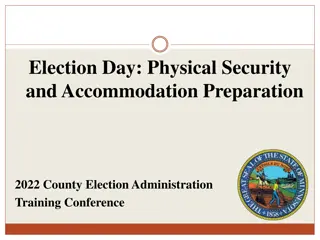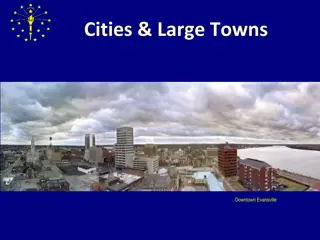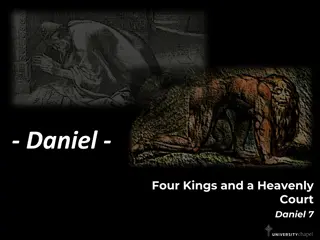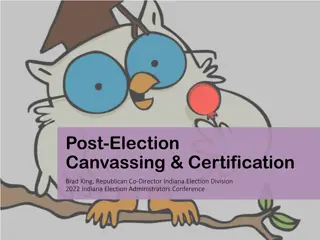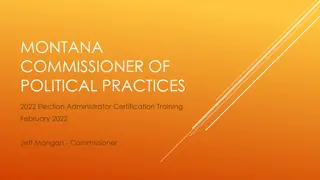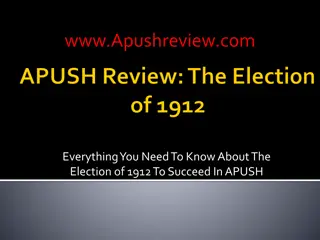The Election of 1912: Competing Visions in American Society
The Election of 1912 during the Progressive Era showcased competing visions on how the federal government could address American society's challenges. Progressives sought reform, social control, and government intervention, impacting the Republican Party's split. Candidates included Wilson, Roosevelt, Taft, and Debs, with Wilson prevailing. Theodore Roosevelt emphasized the people's right to self-governance and the importance of continuous progress. The election outcome reshaped party dynamics and reflected the evolving social and political landscape of the time.
Download Presentation

Please find below an Image/Link to download the presentation.
The content on the website is provided AS IS for your information and personal use only. It may not be sold, licensed, or shared on other websites without obtaining consent from the author.If you encounter any issues during the download, it is possible that the publisher has removed the file from their server.
You are allowed to download the files provided on this website for personal or commercial use, subject to the condition that they are used lawfully. All files are the property of their respective owners.
The content on the website is provided AS IS for your information and personal use only. It may not be sold, licensed, or shared on other websites without obtaining consent from the author.
E N D
Presentation Transcript
Election of 1912: The Progressive Era
Essential Question What were the competing visions for how the federal government could resolve the problems of American society?
Key Ideas Americans faced growing problems related to economic and social changes brought on by rapid urbanization, industrialization, and immigration. Four candidates appeared on the ballot in 1912, each offering different solutions to these problems and envisioning different roles for the federal government in American life. Progressives looked to transform the relationship between government and people using these values: the desire to reform society, the desire to use governmental authority to solve problems, and the desire for greater social control. Though the Progressive Party did not win the election, it was the only time in the history of the American two-party system that a third-party candidate received more popular and electoral votes than a major party nominee.
Key Ideas The election of 1912 revealed deep divisions within the Republican Party, ultimately causing the progressive wing of the party to leave and the remaining members to become increasingly conservative.
Candidates and Outcome Wilson 435 Roosevelt 88 Taft 8 Woodrow Wilson (Democrat) William Howard Taft (Republican) Theodore Roosevelt (Progressive/Bull Moose) Eugene V. Debs (Socialist)
Warm-Up Excerpt from The Right of the People to Rule Theodore Roosevelt March 1912
Excerpt from The Right of the People to Rule Theodore Roosevelt March 1912 The great fundamental issue now before our people can be stated briefly. It is, are the American people fit to govern themselves, to rule themselves, to control themselves? I believe they are. My opponents do not. I believe in the right of the people to rule. I believe that the majority of the plain people of the United States will, day in and day out, make fewer mistakes in governing themselves than any smaller class or body of men, no matter what their training, will make in trying to govern them. I believe, again, that the American people are, as a whole, capable of self-control, and of learning by their mistakes. Our opponents pay lip-loyalty to this doctrine; but they show their real beliefs by the way in which they champion every device to make the nominal rule of the people a sham. . .I am not leading this fight as a matter of aesthetic pleasure. I am leading because somebody must lead, or else the fight would not be made at all . We the people cannot turn back. Our aim must be steady, wise progress. It would be well if our people would study the history of a sister republic. All the woes of France for a century and a quarter have been due to the folly of her people in splitting into the two camps of unreasonable conservatism and unreasonable radicalism. . Roosevelt, Theodore. The Right of the People to Rule, March 1912. New York: Thomas A. Edison, audio recorded August 1912. Audio. From Library of Congress. https://www.loc.gov/item/99391599/.
Excerpt from The Right of the People to Rule Theodore Roosevelt March 1912 May we profit by the experiences of our brother republicans across the water, and go forward steadily, avoiding all wild extremes; and may our ultra-conservatives remember that the rule of the Bourbons brought on the Revolution, and may our would-be revolutionaries remember that no Bourbon was ever such a dangerous enemy of the people and of freedom as the professed friend of both, Robespierre. There is no danger of a revolution in this country; but there is grave discontent and unrest . Friends, our task as Americans is to strive for social and industrial justice, achieved through the genuine rule of the people. This is our end, our purpose. The methods for achieving the end are merely expedients, to be finally accepted or rejected according as actual experience shows that they work well or ill. But in our hearts we must have this lofty purpose, and we must strive for it in all earnestness and sincerity, or our work will come to nothing. In order to succeed we need leaders of inspired idealism, leaders to whom are granted great visions, who dream greatly and strive to make their dreams come true; who can kindle the people with the fire from their own burning souls. The leader for the time being, whoever he may be, is but an instrument, to be used until broken and then to be cast aside; and if he is worth his salt he will care no more when he is broken than a soldier cares when he is sent where his life is forfeit in order that the victory may be won. In the long fight for righteousness the watchword for all of us is spend and be spent. Roosevelt, Theodore. The Right of the People to Rule, March 1912. New York: Thomas A. Edison, audio recorded August 1912. Audio. From Library of Congress. https://www.loc.gov/item/99391599/.
